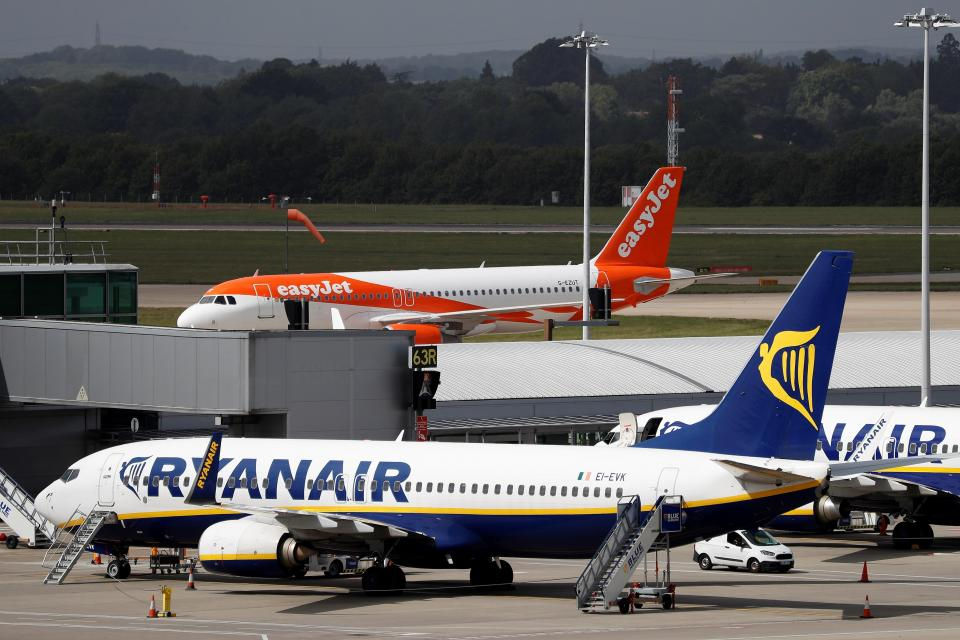Greece and Spain to ease restrictions on flights from UK
- Commercial Aviation News
- Mar 23, 2021
- 3 min read

Greece will begin accepting test-run flights from the UK next month, while Spain has announced that the entry restrictions on flights from Britain that have been in place since late December will be lifted next week.
Greece’s tourism minister, Haris Theoharis, said while Athens’ ambition remained to open up to holidaymakers from 14 May, border controls would also be relaxed in April when “some” airports were allowed to receive traffic from abroad.
“When I mentioned the May start date, I said we will gradually lift restrictions in an effort to test the temperature,” Theoharis told the Guardian newspaper, adding that because tourism was not “an on-off switch” preparatory moves had to be made. “From sometime in mid-April we should be able to accept UK citizens, and those from other highly vaccinated countries, to test the new rules at a few entry points, not all 20 airports, but the ones most commonly used, such as Corfu, Heraklion in Crete, Athens and Thessaloniki.”
Theoharis announced the decision a day after the UK government unveiled a list of exemptions enabling people to leave the country if they had “reasonable excuses to travel”. The new restrictions come into effect on 29 March. The exemptions include thousands of Britons who own second homes in Crete and Corfu - like Boris Johnson’s father Stanley, whose villa overlooking the Aegean brings in more than £40,000 a year in rental income, and many rent out their properties over the summer.
Tourist-dependent Greece is desperate to kick off what is regarded as the nation’s heavy industry. Tourism accounts for more than 20% of GDP and one in five Greeks is employed in the sector. Battered by the pandemic last year, with arrivals at only about 25% of the 31.3 million tourists who visited prior to the virus, authorities want at least double that number this year.
The centre-right government of the prime minister, Kyriakos Mitsotakis, has championed the idea of an EU-wide “vaccination certification” to unlock travel. It has also pursued separate travel arrangements with countries outside the bloc. Last month, Anglo-Greek teams initiated talks on facilitating a travel corridor between the two nations with a commonly agreed digital pass.
“The UK is our No 2 source market and so it’s very important for us,” Theoharis said, praising Britain’s accelerated vaccination drive. “The technical talks are moving forward. All we need is to exchange information as to how to verify the validity of those documents and there seems to be willingness on the other side.” Restarting tourism would send a signal that the world was able to return to some semblance of normality, he said.
On Tuesday, EU citizens who could prove they had been vaccinated, or had tested negative for the coronavirus, were able to fly into Greece without having to self-isolate. Under a deal struck between Athens and Jerusalem, Israelis in possession of a “green pass” also began travelling to the country without having to quarantine.
Asked about British government officials warning against the risks involved in travel abroad, Theoharis said it was important to remember that the numbers of deaths and people being admitted into ICU wards was decreasing despite the increase in transmissions of Covid-19.
“Our scientists tell me with the vaccination programmes moving forward both in Greece and the UK, the weather helping as it did last year, and with all the restrictions in place limiting spread of the disease, things will be much better by mid-May,” he said.
On Tuesday afternoon, the Spanish government announced that restrictions on flights from the UK would be lifted on 30 March to bring them in line with arrivals from the Schengen area.
“Flight restrictions will remain in place for flights from South Africa and Brazil, but not for those from the United Kingdom,” the government’s spokeswoman, María Jesús Montero, told a press conference.
Spain introduced the curbs on 22 December in response to the spread of the so-called British strain of coronavirus, allowing entry only to flights and ships carrying Spanish and Andorran citizens or official residents.
T
hose arriving from the UK from 30 March will still have to show a negative PCR result from a test taken no more than 72 hours before arrival.
On Monday the British government announced new Covid regulations that will ban international travel “without a reasonable excuse”, such as work, study, elite sports, medical reasons, caring for a vulnerable person or the wedding of a close family member. The proposed rule changes mean that those who travel abroad in order to go on holiday could risk a £5,000 fine.
Image - Adrian Dennis

Books From KJM Today:

Coming Soon:

The Web's Premier Resource for Airport History:

